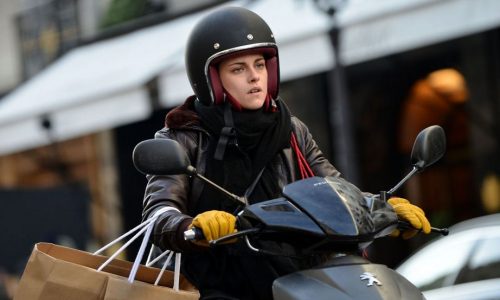The British director Ken Loach has won the top prize at the Cannes Film Festival for the second time. Ten years after winning the Palme d’Or for his story of Irish nationalism, The Wind that Shakes the Barley, the jury – this year led by the Mad Max director George Miller – chose I, Daniel Blake, as its favourite film.

The eponymous widower Daniel Blake, played by Geordie stand-up comedian Dave Johns, is a middle-aged carpenter who’s signed off work by his doctor after a heart-attack but can’t receive benefits because he doesn’t meet the government’s criteria for being unable to work. Johns said it had been amazing working with Loach and he was blown away by the film’s success.
Ticking off one criticism of the government’s welfare policies after another – from the inflexible benefits application process and job-centre bureaucracy to the prevalence of food banks – Daniel and his newfound friend, a single mother from London who’s been sent to Newcastle because of a shortage of housing in her hometown, struggle to support each other and make ends meet.
Collecting the prestigious Palme d’Or prize at the ceremony in Cannes, 79 year old Loach said “The world we live in is at a dangerous point right now. We are in the grip of a dangerous project of austerity driven by ideas that we call neo-liberalism that have brought us to near catastrophe.”
The runner-up prize, the Grand Prix, went to the French Canadian Xavier Dolan’s It’s Just the End of the World and the third Jury Prize went to Andrea Arnold for American Honey; the British director won the same prize for each of her previous Palme d’Or contenders, Red Road and Fish Tank, both of which were also up against films by Ken Loach.
With two BFI-funded films receiving the accolades in the same year, the Director of the BFI Film Fund, Ben Roberts, praised both directors. “This is cinema from the heart,” he said, continuing, “We’re grateful that we have an industry that can support such personal, powerful filmmaking.”

The Best Director honours were shared by the former Palme d’Or winner Cristian Mungiu, for his drama Graduation, about gentle corruption in the Romanian education system, and French director Olivier Assayas, for his fifth Cannes contender, the supernatural murder drama Personal Shopper, which was booed at its premiere.
The late entry to the competition, Asghar Farhadi’s The Salesman, won the prizes for the Best Screenplay and the Best Actor, while the Best Actress honours went to the Philippine soap star Jaclyn Jose for her role in Brillante Mendoza’s Ma’ Rosa.
The winner of the side bar strand, Un Certain Regard, announced yesterday, was The Happiest Day in the Life of Olli Mäki by Finland’s Juho Kuosmanen. Matt Ross won the strand’s Best Screenplay award for his heartfelt hippy drama Captain Fantastic.
It is perhaps notable that the main competition jury completely shunned one of the best-reviewed films in Cannes competition history, Toni Erdmann, and instead chose to give one of the most prestigious awards in world cinema to a film that has eschewed any attempt to be cinematic, with Loach ending his career – if you believe his producer Rebecca O’Brien – with a film that tugs at the heart-strings and shouts at the government. Cannes has given Loach one final platform to appeal for change.
